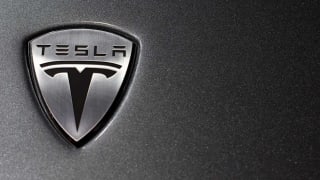As automakers pushed Tuesday for federal authorities to clear the way for autonomous test vehicles on public roads, consumer advocates called for a better understanding of the technology and called for safety data to be made public.
Congress is analyzing what rules of the road might need to be enacted before automakers and others unleash tens of thousands of self-driving test cars on U.S. highways.
The House Energy and Commerce Subcommittee on Digital Commerce and Consumer Protection discussed legislation that would give the National Highway Traffic Safety Administration (NHTSA) sole authority for regulating autonomous vehicles.
For the most part, lawmakers expressed eagerness to bring self-driving cars to market quickly, stressing the technology's potential to reduce fatalities and provide transportation for the disabled and elderly.
"This is a big moment for us," said U.S. Rep. Frank Pallone, a New Jersey Democrat. "Autonomous vehicles have the potential to change everything."
But privacy and transparency concerns were raised at the hearing. One key part of that debate is whether to make testing data automakers collect to verify safety publicly available. The proposed House legislation would make the data confidential business information, which NHTSA would be required to keep secret.
Under the bill, the only parties analyzing whether the technology is safe would be automakers and NHTSA, testified Alan Morrison, a George Washington University professor of Law who has a background in consumer safety issues.
He said automakers have a profit motive and NHTSA could come under political pressure to approve deploying autonomous vehicles in ther future. "No one's going to be guarding the guards," Morrison said. "We need someone to be looking at this information besides NHTSA and the automakers."
Several lawmakers noted the release last fall of a federal policy on autonomous vehicles, developed by NHTSA and the Department of Transportation. Those guidelines, issued at the end of the Obama administration, were intended to be voluntary and flexible enough to keep up with fast-moving technology.
Without federal laws in place, states have already begun to act, according to a memo prepared by the committee before Tuesday's hearing. Nineteen states have enacted self-driving car legislation, and four more state laws are pending.
The benchmark for any new federal legislation should be significantly improved road safety, say consumer advocates, including Consumers Union, the policy and mobilization arm of Consumer Reports.
Any accelerated deployment should be evidence-based and include sensible, binding measures to protect consumers against any new hazards, said Will Wallace, a policy analyst with Consumers Union. Overriding state efforts at regulation should be limited to areas where NHTSA already has established strong federal standards, he said.
Separate standards should be considered for cars that are only partially autonomous, Wallace said. Systems that can partially steer or brake themselves—such as Tesla's Autopilot—can provide a dangerous, false sense of security, increasing the risk of driver inattention or error, he said.
"Self-driving cars have enormous potential to make our roads safer by significantly reducing crashes attributable to driver error," Wallace said. "There is a smart, safe path to realizing this promise."
What do other countries do? The United Kingdom, Germany, Sweden, Japan and South Korea all have taken recent steps to "nationalize" their laws for deploying self-driving cars. Mitch Bainwol, president and chief executive officer of the Alliance of Automobile Manufacturers, said the U.S. is moving in the opposite direction.
"Do you want these cars to have to stop at every state line?" said Greg Walden, R-Ore., chairman of the House Energy and Commerce Committee . "We've never done that before in transportation."
States are stepping in because NHTSA hasn't set clear rules about testing, said Morrison, the George Washington University law professor.
Under the proposed House bill, states would be prohibited from doing things to keep their highways safe "no matter how little NHTSA does," he said. Allowing every manufacturer an exemption to put 100,000 self-driving cars on the roads would create a huge population of unregulated vehicles, he said.





















